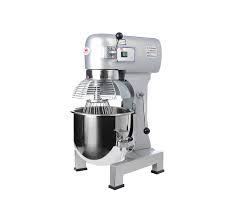NEWS
How to choose a suitable Dough Mixer in Kenya

Dough Mixer
Dough mixers are used by bakers in stirring dough in ingredients inside a trough or bowl to produce even dough. A mixer may occasionally succeed in adequately mixing the dough, but its motor is at high risk of permanently damaging It. Forcing the machine can also be a trying and messy experience. In this article, we look into how to choose different dough mixers.
Do you want to locate the most effective dough mixer? When making this critical investment, one of the aspects that will be taken into account is your budget. The price of a dough mixer in Kenya is determined by the kind of dough mixer desired.
How much product you will be prepared depends on what types of dough you will be mixing, which will help you determine which mixer you require; when figuring out which commercial mixer is suitable for you, there are numerous options to consider.
Dough mixers can be categorized into broad categories, and you should make wise decisions in choosing the best for your mixing experience.
Spiral mixer
Many artisan bread pastry chefs prefer these due to their capacity to reduce heat generation into yeasted dough while properly developing gluten system without overstretching the dough.Spiral mixers are appliances that are put on the floor; therefore, space should be put into consideration before investing in it.
It ensures the ingredients are well-blended due to the rotation of the bowl. They are suitable for the mixture of bread because the device keeps the dough at a favorable temperature, ensuring that it does not ferment quickly.
It is crucial to assess the dough mixer price in Kenya, so as to know which type of mixer to buy.
Planetary mixers
The planetary mixers offer the best option for bakers that wants to prepare a variety of food at a higher volume. They need proper agitators and attachments for optimal performance; whips, beaters, pastry knives, as well as,dough hooks are standard agitators utilized for the bowl mixing process.
Planetary mixers all seem to be excellent for thoroughly mixing cookie ingredients as well as kneading heavy dough, but they can also be utilized to chop meat, slice vegetables, and make batter, giving bakers more options.Such adaptability allows bakers to explore by providing customers with options besides conventional baked goods like cookies, as well as bread.
Diving arm
Most common in most countries as they are best suited for better dough mixing, it is an upcoming trend mixing device now widespread in Europe due to its hydration nature of removing water. It is suitable for bakers that want to produce large amounts of goods, especially bakers who are usually busy. Most artisans prefer this mixer because it does not overwork the dough and minimizes heat input.
Conclusion
The decision is now yours; having gone through these different mixers, you can come out with the best mixer for your mixing experience. You should hurry to any kitchen appliance outlets and get the best dough mixer that suits your needs perfectly.
Hurry now and experience yourself or make yourself familiar with these mixers. If you want your baking to be more accessible, consider choosing the best mixer.
Sebastian was born and raised in the busy city of Abbottabad. As a journalist, Saad Mushtaq has contributed to many online publications including the PAK Today and the Huffing Post. In regards to academics, Saad Mushtaq earned a degree in business from the Abbottabad UST, Havelian. Saad Mushtaq follows the money and covers all aspects of emerging tech here at The Hear Up.Thanks










